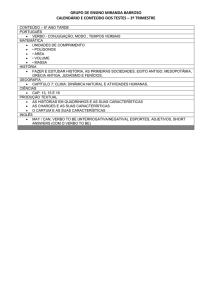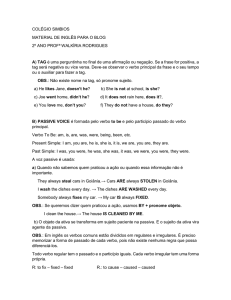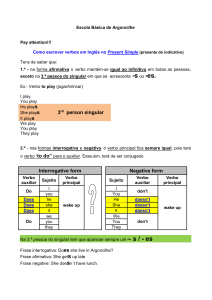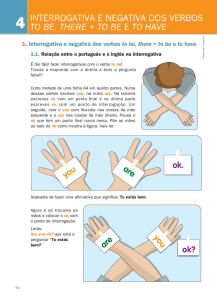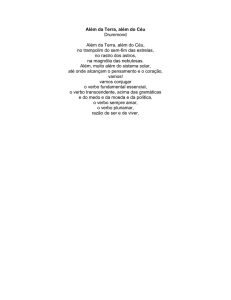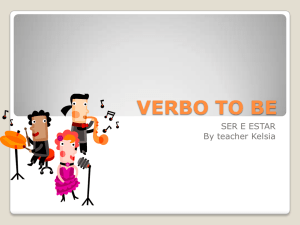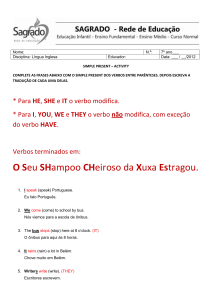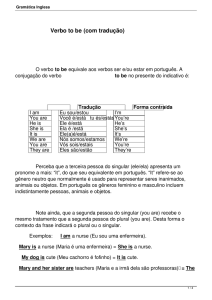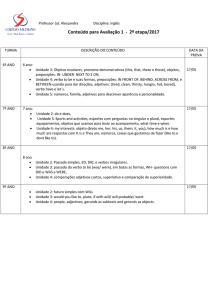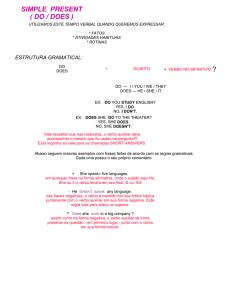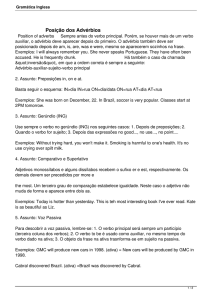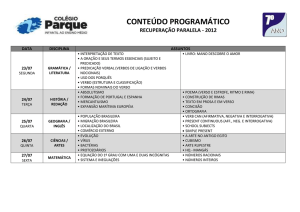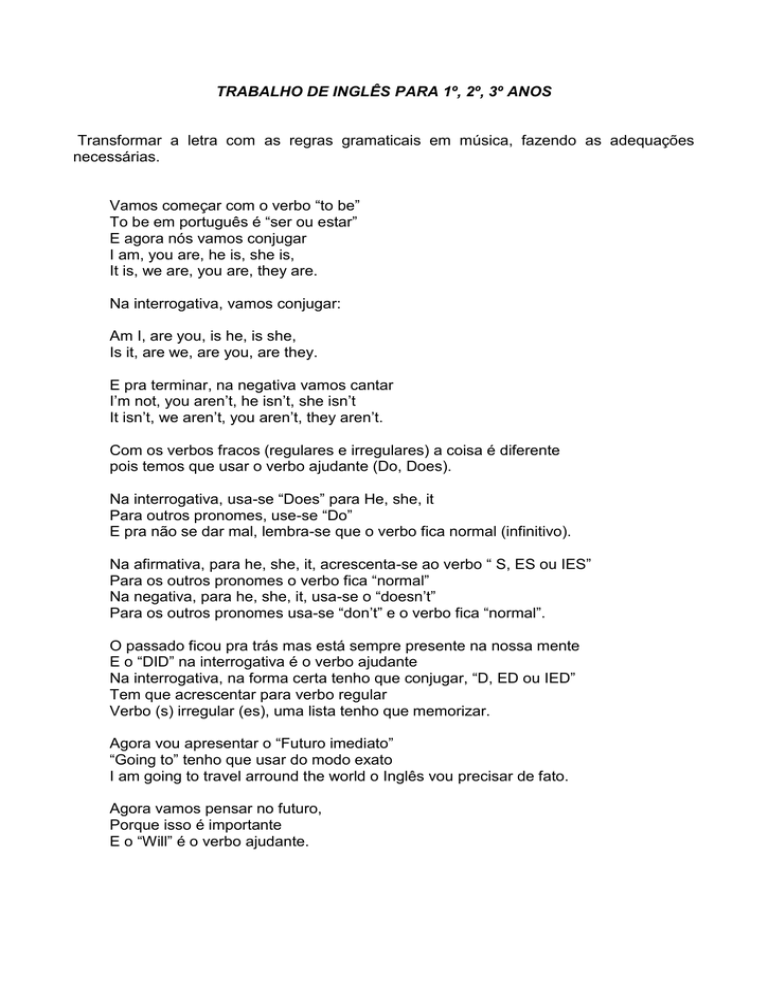
TRABALHO DE INGLÊS PARA 1º, 2º, 3º ANOS
Transformar a letra com as regras gramaticais em música, fazendo as adequações
necessárias.
Vamos começar com o verbo “to be”
To be em português é “ser ou estar”
E agora nós vamos conjugar
I am, you are, he is, she is,
It is, we are, you are, they are.
Na interrogativa, vamos conjugar:
Am I, are you, is he, is she,
Is it, are we, are you, are they.
E pra terminar, na negativa vamos cantar
I’m not, you aren’t, he isn’t, she isn’t
It isn’t, we aren’t, you aren’t, they aren’t.
Com os verbos fracos (regulares e irregulares) a coisa é diferente
pois temos que usar o verbo ajudante (Do, Does).
Na interrogativa, usa-se “Does” para He, she, it
Para outros pronomes, use-se “Do”
E pra não se dar mal, lembra-se que o verbo fica normal (infinitivo).
Na afirmativa, para he, she, it, acrescenta-se ao verbo “ S, ES ou IES”
Para os outros pronomes o verbo fica “normal”
Na negativa, para he, she, it, usa-se o “doesn’t”
Para os outros pronomes usa-se “don’t” e o verbo fica “normal”.
O passado ficou pra trás mas está sempre presente na nossa mente
E o “DID” na interrogativa é o verbo ajudante
Na interrogativa, na forma certa tenho que conjugar, “D, ED ou IED”
Tem que acrescentar para verbo regular
Verbo (s) irregular (es), uma lista tenho que memorizar.
Agora vou apresentar o “Futuro imediato”
“Going to” tenho que usar do modo exato
I am going to travel arround the world o Inglês vou precisar de fato.
Agora vamos pensar no futuro,
Porque isso é importante
E o “Will” é o verbo ajudante.
I will be, he will be, they will be, I will go, he will go, they will go
We won’t go backwards
We will go fast forward.
Usem a criatividade....pode usar instrumentos acústicos e de sopro.
Bom trabalho.
Ps. Memorizar as regras para a chamada oral
Rony

